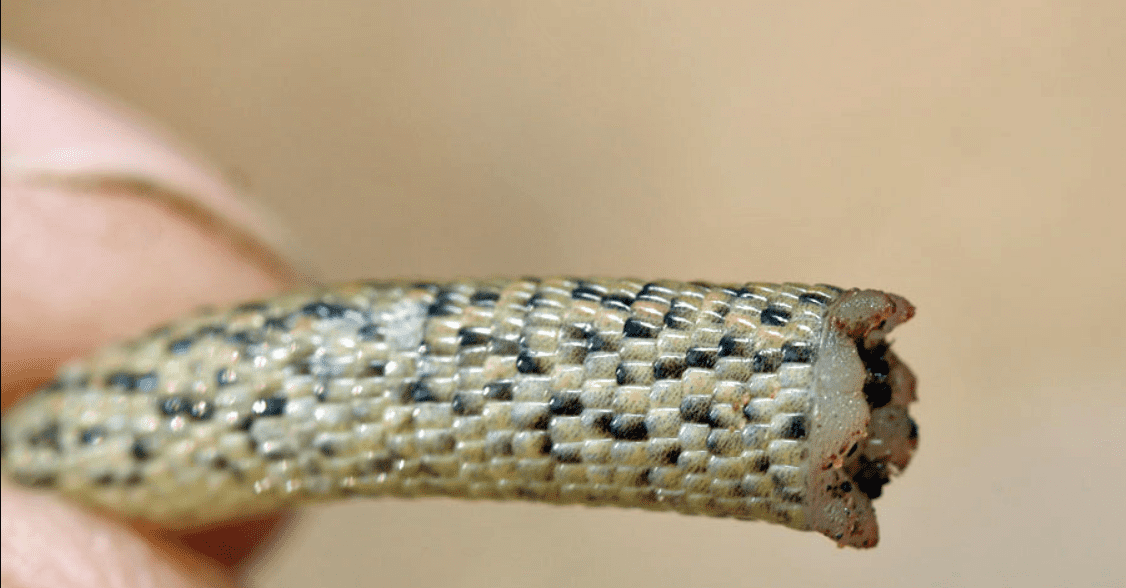
What if you could repair aging joints like a lizard repairs its damaged tail?
Unsubscribe | Report as spam | Change email preferences
—-Important Message from Dr. Marlene Merritt—-
Why lizards don’t get joint pain
It sounds like sci-fi…
Except that it’s true – men are using this bizarre lizard secret to “rejuvenate” their knees and hips.
It’s repairing damaged joints the same way a lizard repairs its damaged tail.

Here’s Duke University’s bizarre lizard secret to new knees and hips
———-
These are the healthy fats all men should be eating more of
You know, of all things, I hate PUFAs (unsaturated fatty acids) most.
I talk about their dangers all the time.
How they cause numerous diseases like cancer, obesity, high blood pressure, fatigue, impotence, diabetes is not news for you.
They are rancid and oxidized, and when they get into your body, they get all greasy and clog up your arteries.
The list is just so long that I could continue all day long.
Vice versa, SATURATED fats are GREAT for you.
There are many critical health benefits of saturated fats but here are 4 main ones:
- Cardiovascular Health – saturated fats might decrease levels of lipoprotein(a), which builds up in the arteries and clog them.
- Immune Health – saturated fats power your white blood cells so that they can fight invaders like viruses and bacterias.
- Bone Health – Saturated fats are critical when it comes to building strong bones. That’s why cheese is good for you with all that calcium and saturated fat.
- Brain Health – Your brain is literally made up of fats and cholesterol. Incorporating more saturated fats into your diet is a great way to nourish your brain.
Saturated fats are a natural part of the human diet.
Even in the prehistoric times, humans were eating quite a bit of saturated fats.
Hunter gatherers hunted wild animals which consisted of a substantial amount of saturated fats in fatty tissues.
Which is a reason why we are accustomed to eating saturated fats, we have been eating them for hundreds of years.
And today’s study is about how people are attracted to saturated fats as opposed to their counterparts, unsaturated fats.

This study was published at Chemical Senses Journal of Oxford Academics. The experiments took place in Pennsylvania State University.
The study was simple.
The researchers recruited more than 100 people.
They were divided into 3 groups and the participants were told to eat and smell different types of melted chocolate.
The difference between these chocolates was 1 simple ingredient.
Added fatty acids.
They used 3 different types of fatty acids for each group, namely, stearic acid, oleic acid, and linoleic acid.
Stearic acid is a saturated fatty acid as I mentioned.
Oleic acid is a monounsaturated fatty acid.
Linoleic acid is a polyunsaturated fatty acid, aka a PUFA.
The researchers wanted to observe how people reacted to these 3 different chocolates.
The results were not really shocking, as we discussed above.
The participants disliked and rejected all the chocolates EXCEPT the one with the added saturated fatty acid, i.e., stearic acid.
Both Oleic and Linoleic acid were rejected in terms of taste and smell.
“For oleic acid, a pattern emerged with significant preference for the control over the added FFA sample”
“For linoleic acid, the pattern of rejection with increasing added fatty acid is even more pronounced than for oleic acid.”
The chocolate with the added saturated fat was not disliked at all.
The group that was assigned with stearic acid added chocolate kept eating it unlike the others.
The researchers concluded the article with the following statement:
“Further, as many public health recommendations stress replacing dietary saturated fat with polyunsaturated fats, the greater rejection of polyunsaturated fatty acids, both by aroma and taste, could complicate implementation of and compliance with diets that have “healthier” fatty acid profiles.”
They were skeptical of medical circles’ claim that PUFAs are healthy because of the fact that the participants disliked the taste of PUFAs.
Cravings and the sense of taste are natural instincts of mankind.
Getting familiar with your senses and tuning into your body can be very beneficial for your well-being.
Unless we are talking about completely modified and processed foods…
I believe following your natural instincts is a good idea because they can tell if that food is good for you or not…
And this study proved to us that saturated fats are welcomed by our taste buds as well.
What I recommend is that you should incorporate more delicious and healthy saturated fats into your diet.
You can use butter, tallow or coconut oil.
I am sure that your taste buds will thank you for the change as well.
—-Important Message About Men Living Past 100—-
One thing older men are doing to have intercourse every day
I’ve found a hidden group of men in the Eastern Bloc who are living well past 100, even 115 and 120… AND having great sex.

Not just good sex, GREAT sex. As if they are men in their prime, in their 20s and 30s!
And I’ve identified one single thing these older men are doing (that I am now doing myself) that leads to a very long and sexy life.
Keep in mind, these men routinely smoke cigarettes, drink alcohol, and eat what they want.
———-

